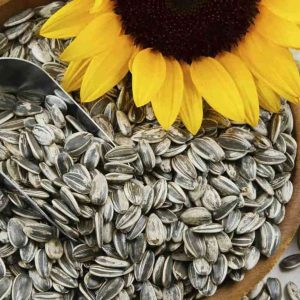
الريجيم يكسبك الكثير من الدهون
بصفتي شخص يكتب عن الطعام والصحة ، فأنا أسأل في بعض الأحيان عن المعادل الحديث للأزمة الصحية الناجمة عن التدخين. ما الذي نفعله الآن هو أننا سوف ننظر إلى الوراء في حالة من الرعب ، ونسأل أنفسنا “كيف لم نر ضررًا”؟
جوابي هو اتباع نظام غذائي. أعتقد أنه في غضون 50 عامًا ، سيسألنا أحفادنا عن سبب اعتقادنا بأن التجويع قصير المدى كان وسيلة فعالة لتغيير وزنك بشكل دائم. وقد يسألوننا أيضًا كيف أصبحنا مهووسين بجعل المجموعة المتنوعة الرائعة من الأجسام البشرية بالضبط نفس الشكل والحجم.
سيحاول نصفنا تقريبا اتباع نظام غذائي لفقدان الوزن . تشير الدراسات إلى أن معظم أخصائيو الحميات سوف يستعيدون في نهاية المطاف أي كيلوغرامات مفقودة ، حيث ينتهي معظمهم بأثقل من ذي قبل. وقد أظهرت الدراسات السلوكية طويلة الأجل أن اتباع نظام غذائي واحد من أقوى المؤشرات على زيادة الوزن في المستقبل. يشير العمل على التوائم إلى أن هذا التأثير قد يكون سببيًا. من المفارقات أن هاجسنا من تقليل الدهون يسبب لنا أن نصبح أكبر.

على الرغم من أن وسائل الإعلام ستجعلنا نؤمن بالقدرة غير المنتظمة على الشكل البشري ، إلا أن سمنة الجسم نادراً ما تكون تحت سيطرتنا. أثبتت جيناتنا مرارًا وتكرارًا أنها واحدة من أقوى العوامل التي تنبئ بمدى وزننا ، وعندما يكون الغذاء متاحًا مجانًا ، يعد الوزن أحد أكثر الخصائص الموروثة التي تم دراستها على الإطلاق ، في نفس الملعب الذي يبلغ ارتفاعه. هناك العديد من النظم الفسيولوجية التي تساهم في ذلك. على سبيل المثال ، الليبتين هو مادة ينتجها نسيجنا الدهني ، وعندما نفقد الوزن ، يبدأ مستوى هذا الهرمون القوي في الانخفاض. هذا يشير إلى أجزاء بدائية من الدماغ ، تدفعنا بقوة إلى تناول المزيد. على الرغم من أن الجداول الزمنية الأطول تعطينا وهم السيطرة ، فإن الرغبة في تناول الطعام تشبه إلى حد كبير حاجتنا إلى التنفس. يمكننا السيطرة عليها لعدة أيام أو أسابيع أو ربما شهور. لكن في النهاية ، سيفوز الجوع.
ولجعل الأمور أسوأ ، يمكن للهرمونات أن تسقط معدل الأيض لدينا استجابة لنقص الطعام ، وإغلاق الوظائف غير الأساسية لحفظ السعرات الحرارية. هذه الأنظمة تطورت قبل فترة طويلة من معلمي النظام الغذائي المشاهير ، ولا يمكن معرفة الفرق بين أحدث نظام غذائي والمجاعة التي تهدد الحياة. من المرجح أن يسبب الحفاظ على السعرات الحرارية هذه الخمول واضطرابات المزاج وانخفاض وظائف المناعة .
يمكن لجولات الموت هذه أن تسبب ضررًا نفسانيًا ، حيث يتم إلقاء الحميات غير الناجحة كالفشل في عالم يضع النحافة والتوافق الجسدي كهدف نهائي. فبدلاً من السير في طريق عابر إلى الفشل ، قد يكون من الأفضل التفكير في ما قد يحسن صحتنا ، بخلاف فقدان الوزن. ممارسة الرياضة ، وتناول الطعام عالي الجودة ، والتوقف عن التدخين ، وتحسين النوم والحد من الإجهاد ، كلها لديها القدرة على جعلنا أكثر سعادة وصحة. ولكن في مجتمع مهووس بالدهون ، غالباً ما تُطرح مثل هذه الأشياء جانباً مثل التفاهات إذا لم تتسبب في إلقاء الوزن.
وينظر إلى الدهون على أنها المشكلة الوحيدة ، حيث يصطف عدد لا يحصى من المصابين ليبيعوا بضائعهم. يدعي جميع خبراء التغذية أنهم يملكون الحل الحقيقي الوحيد ، ويعدون بإصلاح أجسادنا المريضة في النهاية. ولكن ربما لا تكمن المشكلة الحقيقية في أننا لم نعثر بعد على النظام الغذائي الصحيح. ربما يكون رفضنا ببساطة القبول بأن التجويع المؤقت ليس مجرد وسيلة فعالة لتحسين صحتنا.






